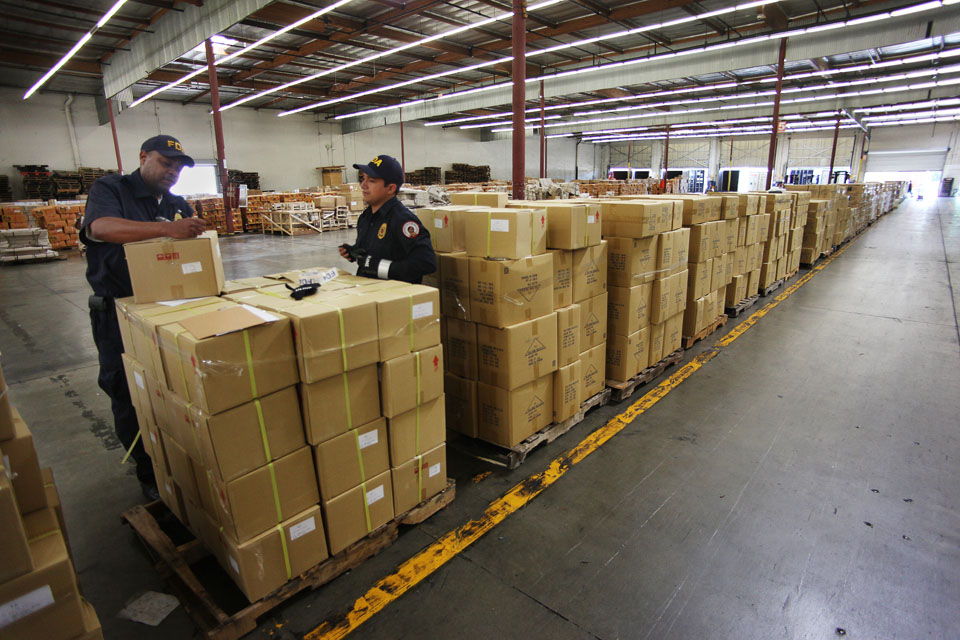
 Surrounded by controversy, kratom has earned itself both a huge population of supporters as well as a stern group of critics. The powerful herb has often been dubbed the answer to the opioid crisis for its alleged effects against opioid withdrawal. Many anecdotal sources claim that kratom is also an effective treatment against pain, stress, and depression, but studies regarding its benefits are still insufficient to make a conclusion.
Surrounded by controversy, kratom has earned itself both a huge population of supporters as well as a stern group of critics. The powerful herb has often been dubbed the answer to the opioid crisis for its alleged effects against opioid withdrawal. Many anecdotal sources claim that kratom is also an effective treatment against pain, stress, and depression, but studies regarding its benefits are still insufficient to make a conclusion.
With so much confusion and uncertainty surrounding the herb, buyers and sellers are all unsure where the authorities draw the line. And because most kratom supplies come from Southeast Asia, customs and imports make up most of the questions. Can you ship kratom into and around Canada? Here’s what you need to know when looking into importing kratom.
The Legal Status of Kratom in Canada
First things first, it’s important to outline just where kratom stands when it comes to Canadian law. According to Health Canada, kratom has not been approved for human or animal use or consumption. That means both internal and external use since Health Canada states that kratom can cause a serious threat to a person’s health when ingested or inhaled.
Even then, the country has yet to ban kratom for sale or purchase. That means that as long as a brand explicitly labels their products as not for ingestion, consumption, or human use, then they should be in the clear. And that’s exactly what Canadian-based vendors are doing.
By labeling their products as ‘for research purposes only’, Canadian vendors are able to bypass the red tape and sell their products across the country. In the same vein, those that sell kratom in forms that could indicate human use or ingestion — like capsules, edibles, teas, and vape juices — put themselves at risk of being hunted down by the authorities.
Can You Ship Kratom Around Canada?
The short answer is yes, you can. Today, Canadian kratom vendors have no trouble shipping their products within Canadian borders. In fact, there are zero provinces in Canada that have placed a ban on kratom, unlike in the United States where several states have strictly prohibited the shipping of kratom into and out of their borders.
The main key is to make sure that the products are properly labeled. Kratom vendors have to be careful to label their products as ‘not for human use’ to prevent any hiccups during the shipping process. As long as that detail is met, then Canadian buyers can expect to get their products in as little as 24 hours after placing an order.
Can You Import Kratom to Canada?
All of those kratom vendors must get their kratom products from somewhere. And that’s where international shipping enters the picture. Importing kratom starts by shipping product from overseas back here to Canada. Most of the Canadian-based vendors get their kratom supply from kratom wholesalers in Southeast Asia. These vendors sell kratom at incredibly low costs, allowing resellers to rebrand the product and add a fat profit to their selling price.
In general, the Canadian Border Services Agency doesn’t crack down too hard on kratom imports as long as — again — they’re properly labeled. If shipments declared as ‘health supplements’ or anything similar enter the facility, then that might be the reason for authorities to seize the package.
Fortunately, there are almost zero reports of the Canadian Border Services Agency seizing kratom packages at their facilities. That said, if you’re buying kratom internationally, make sure you inform your chosen vendor to remove any labels that the product is intended for human use just to stay on the safe side.
Is It Legal to Buy or Sell Kratom in Canada?
Yes, it’s legal, but with some restrictions. Again, the most important thing to remember is that your kratom product should never be advertised as a food, drink, or health supplement. In case a vendor fails to meet these specifics, then Health Canada and the Canadian Food Inspection Agency (CFIA) have the liberty to seize the products and order the closure of your establishment.
If you’re selling kratom and you’re sending the product outside of the country, then the laws that regulate kratom in that specific jurisdiction will decide whether the package will arrive at the customer’s doorstep or if it would get seized along the way. In case it does get seized, there would be no legal repercussions on your end since your shipping from a place that doesn’t ban the herb.
Knowing Your Kratom Laws
It can be confusing and sometimes even daunting to deal with such a controversial herb. But as long as you know the specifics of the laws surrounding kratom, you should be in the clear.
In general, the Canadian government only requires that you label your products properly since they’ve yet to approve kratom for human consumption. But since Canada seems to be slightly more open to the idea of kratom being a beneficial herb, we might soon witness these limitations being lifted. But until the, when it comes to importing kratom, the number one thing you need to do is make sure that it is labeled correctly.
